One year as an Assistant Manager at Obubu
みなさん こんにちわ!
This is Sarah and, together with Pau, I joined Obubu as an Assistant Manager in September 2023. It is now the end of my program, and I wish to give a brief summary of how incredible this year at Obubu has been. Following on my previous blog posts, I will try to narrate a bit about each season through the flowers and plants that have caught my attention. So, let’s go together on this journey back in time, starting from September 2023.
Autumn: The Higanbana blooms and the Silver Grass is tall
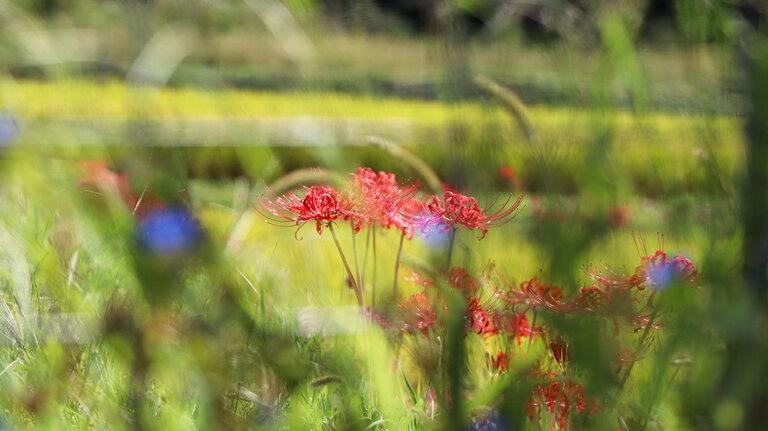
I arrived at Obubu with the fading of the summer heat. Higanbana were sprouting, covering Wazuka in a red cape. I met Pau, and we soon started sharing books and tea.
One core memory from last Autumn is of when the previous intern Katrina, Pau and I were sitting around the kotatsu in Obubu House, sending each others papers and book titles on tea, while Katrina brewed Pu’er tea.
We started trimming, then it was time to harvest.
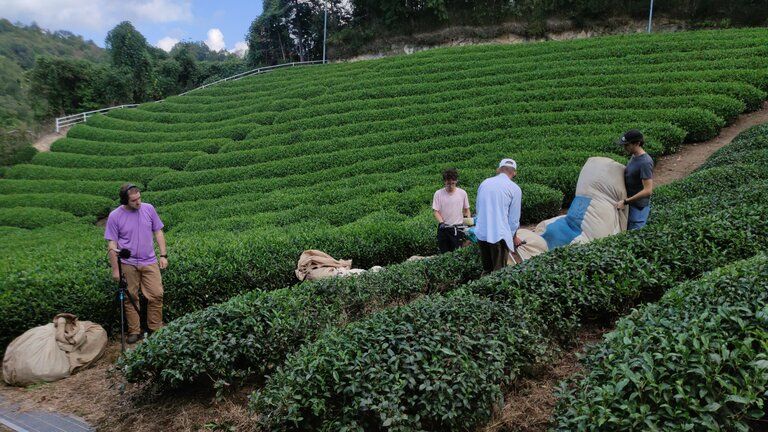
After my training, I started processing leaves from Aoimori tea field. That tea we processed last Autumn will become Hojicha Cooking Powder. The leaves were tough and hard to shape into needles, but I tried my best to learn how the machines work, and how the leaves behave throughout the processing, to be ready for the spring processing.
My favourite task was carrying the harvesting machines. The interns were super motivated and spending the time in the field with them was like a day of adventure, with the nice reward of tea during the breaks.
I started getting used to driving in the tiny and curvy roads towards the tea fields.
In this period, during the days off, I also got to travel around, visiting with Pau and the interns the pottery towns of Tokoname (during a festival), Iga and Shigaraki.
Leaves of momiji started becoming orange and Miwako, Jean and I went walking with the little dog Sakura-chan around Wazuka. The same day, we joined the Wazuka’s tea festival. This was a good chance to discover more about the types of tea made in the area and meet the tea farmers from town. We got to try so many delicious teas!
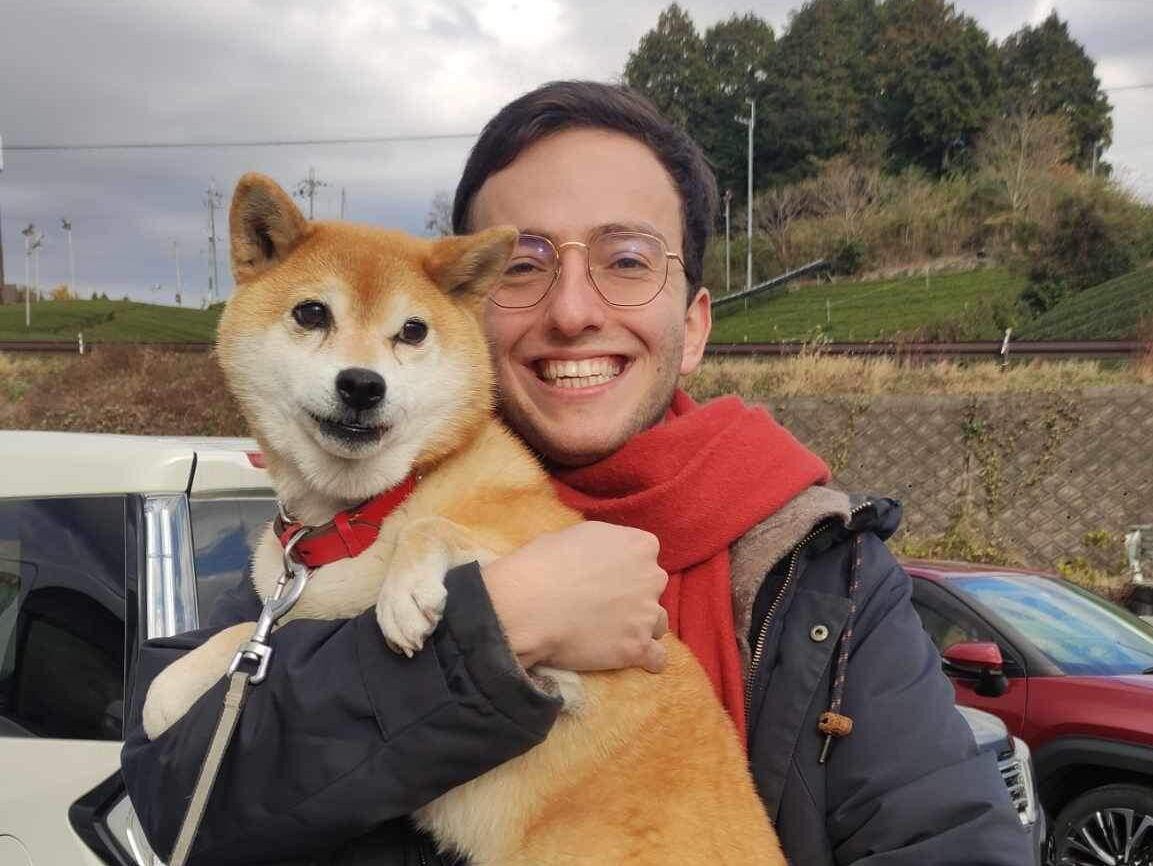
My project at this time was to organize the facilities of Obubu, in particular the second floor of the Hojicha Factory. We also reorganized items into the newly constructed second floor of the sencha factory, where we also built tables and chairs.
Jean, Pau and I also organised “Tea lounges”, evening discussions on topics we enjoy sharing about. Jean shared his knowledge and experience on Nepalese teas, Pau discussed the deep and complicated history of kamairicha and tamaryokucha, while I covered the history of tea in the relationships between the British Empire, China and Assam.
Winter: The Manryo Plant colours the town in red, nature is silent.
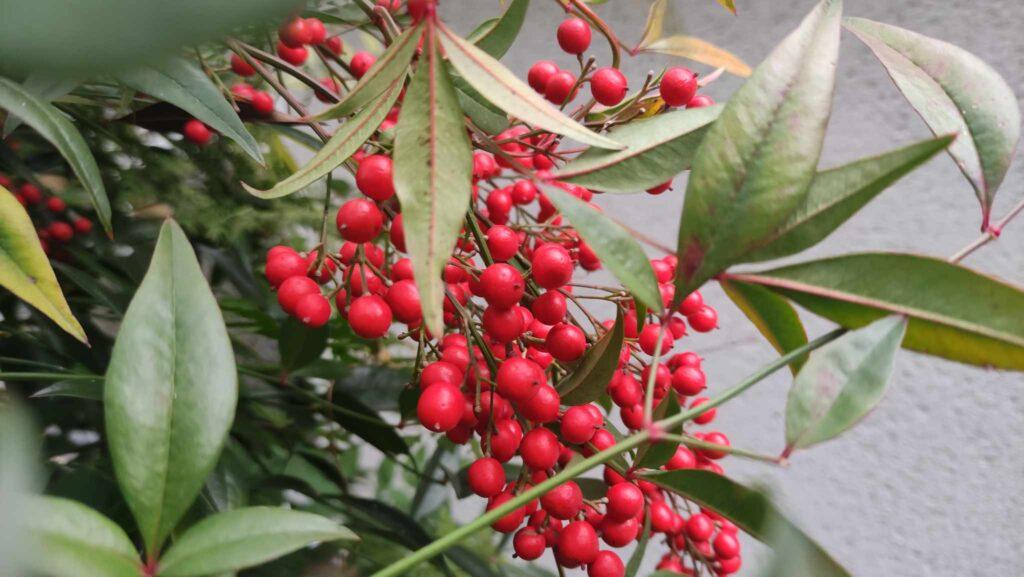
As the leaves started falling, harvest ended, and life became quieter.
December was cold, but we warmed up inside. We focused on construction work and education.
Jean, Pau and I worked on the Assistant Manager Education program (AME), studying, learning and condensating the information in a set of 14 presentations. We also conducted the test runs of the events and workshops in collaboration with local artisans that we started hosting from March. We pounded mochi, shaped wagashi and rolled clay. Office work, besides AME and the normal activities of intern coordination and tea tourism, has mainly consisted for me in working with Idemasa-san to put up the wagashi workshop.
And then, construction happened. We insulated and constructed the walls of the second floor factory, moving furniture to transform it into a community space to host events. We finally started using that space for the tea-tour lunch, so that guests could enjoy their time gazing at the Wazuka mountains from the new large window.
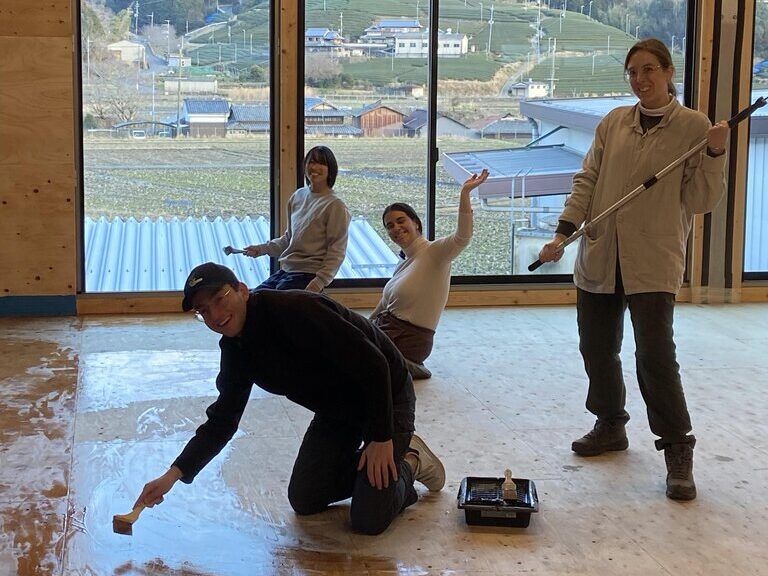
There was a Chakabuki (tea tasting competition) in the Wazuka community center, hosted by Akky-san, and Jean won third place. We also organised Chakabuki at Obubu, and Akky-san invited some tea farmers friends. Of course we did not stand a chance to win against them, or to even be a decent comparison, lol.
In January, I went visiting Ikedoki for a few days. During our tea tour we often mention our “sister company” and I was very curious to see it with my own eyes. Marjoleen and Matsu-san gave me the warmest welcome in Igashi-Sonogi. Marjoleen drove me around to explore the area, and I could see the ocean appearing at the horizon while standing in the tea fields.
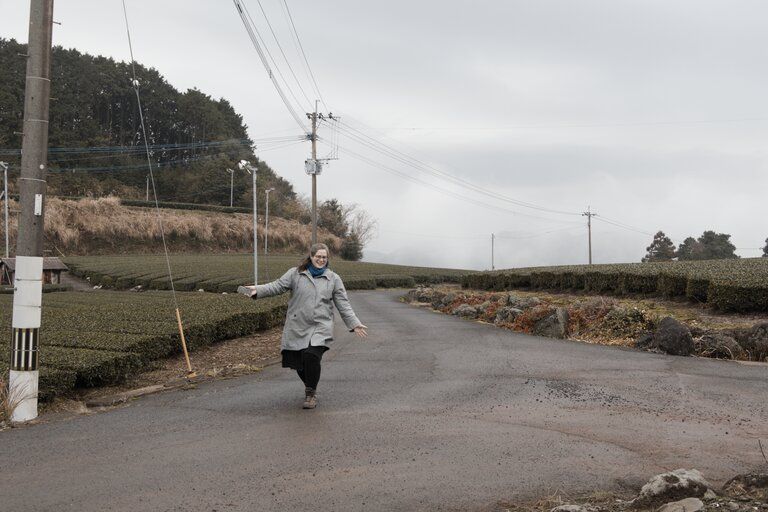
Towards the end of winter I also joined Kayo-san and George on a trip to Shizuoka, to meet the manufacturer of the Chabako that we use on our tea tours.
Back in Wazuka, the whole team went to Aoimori tea field to harvest for Kyobancha.

Before the start of the busy Spring season, I went with my co-intern Jia En, who came back to visit, and the intern Kia to Toshi-san mochi factory. We tried our best to make ichigo daifuku, and got to enjoy them with tea at Obubu.
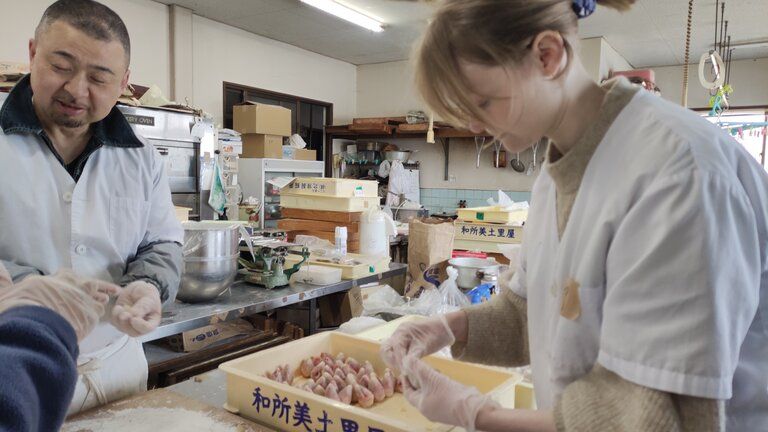
Spring: The Sakura quickly fall, but the Wisteria cheers us up.

The Spring started with a big celebration: Obubu has been here for 20 years, and we celebrated it with previous interns and tea club members that joined us for the day. My co-interns and friends from the time of my internship came back to Obubu, and Obubu felt even more like “home” than it does already.
The days started getting longer and warmer.
We waved the most heartfelt “see you soon” to my senpai Jean. Then, the spring harvest started.
Mac and Alix joined the Assistant Manager team, and soon they found themselves harvesting with Akky-san, and guiding guests on tea tour. We all were very busy, but most interns still had the energy to travel in the weekends to gaze at the blooming sakura trees. In the free time, interns and assistant managers also also collected some of the new shoots of springs for some extra tea-making experiments. I, for instance, made some white tea.
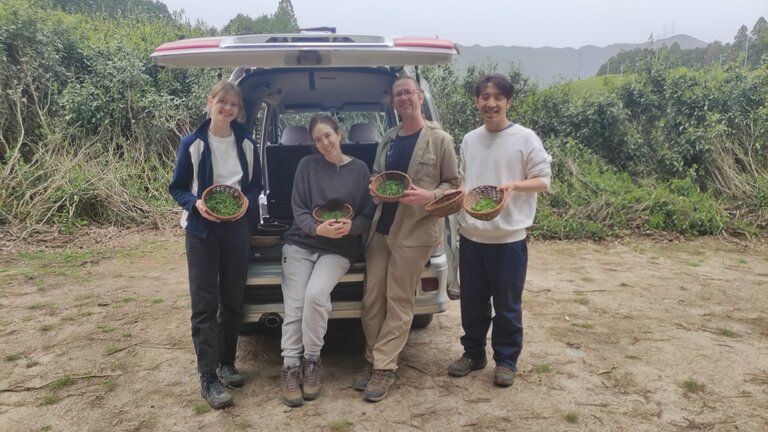
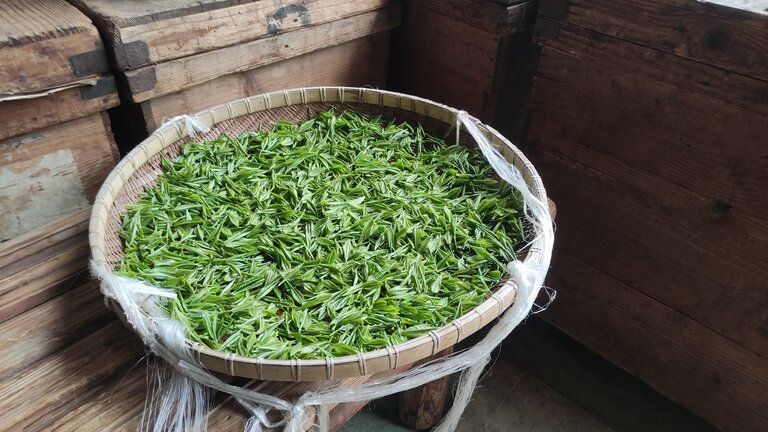
I processed Gyokuro with Miwako. That day, one of the rolling machine started acting up, and we had to wait for repair. In the meantime we could not stop the process, and Akky-san, Hiro-san and Miwako quickly found an alternative way to not skip the rough-rolling, but to do it with a different machine. Moreover, the temperature and humidity during the day kept changing, affecting the state of the leaves. So, we had to constantly adjust and regulate the machines to match the current state of the leaves. It was an intense afternoon, but I learned so much, and we made tea!!! Seeing the leaves transforming from plant to brewed tea is one of the most magical experiences!
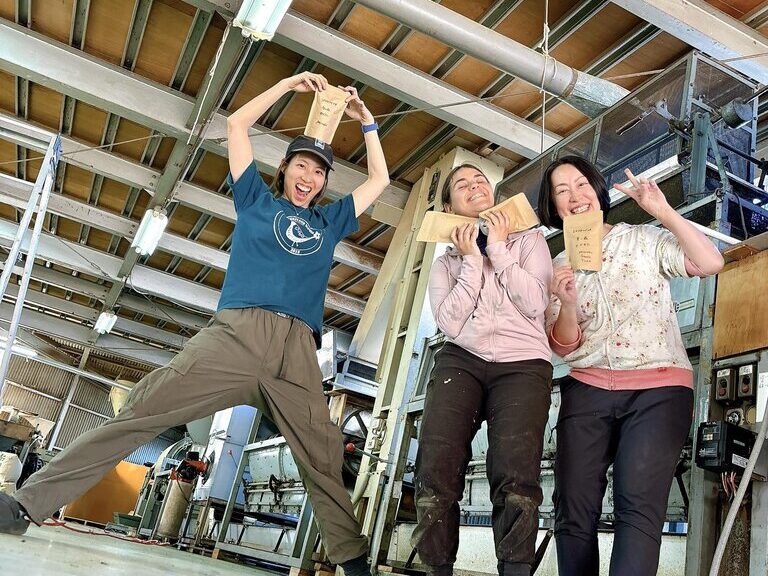
Then, the wisteria covered the sides of the mountains around Wazuka, and the tencha harvest started. When bringing the bags filled with fresh leaves to the tencha factory, we were always welcomed with a smile, and on the hottest days, with a bottle of mineral drink.
In the evenings, tea parties became a habit. We brought tea parties to the next level, with previous intern Patrick double pouring tea at the rhythm of dance-pop music from the 2000s.
For three Sundays in a row I got the chance to spend the mornings in the tea fields and hand-pick tea while meeting farmers from Wazuka. The first Sunday was the yearly hand-rolling event organized by the Wazuka Hand-rolling Preservation Society. The second week, George, Alix and I hand-picked Tencha with the Wazuka farmer Yohe-san. The third week, I joined Pau and his tea-ceremony pals to handpick tea with the farmer Morisaki-san. These were all unique chance to learn more about tea, and about Wazuka!
Summer: Hydrangea to gaze upon, until the rice grows yellow
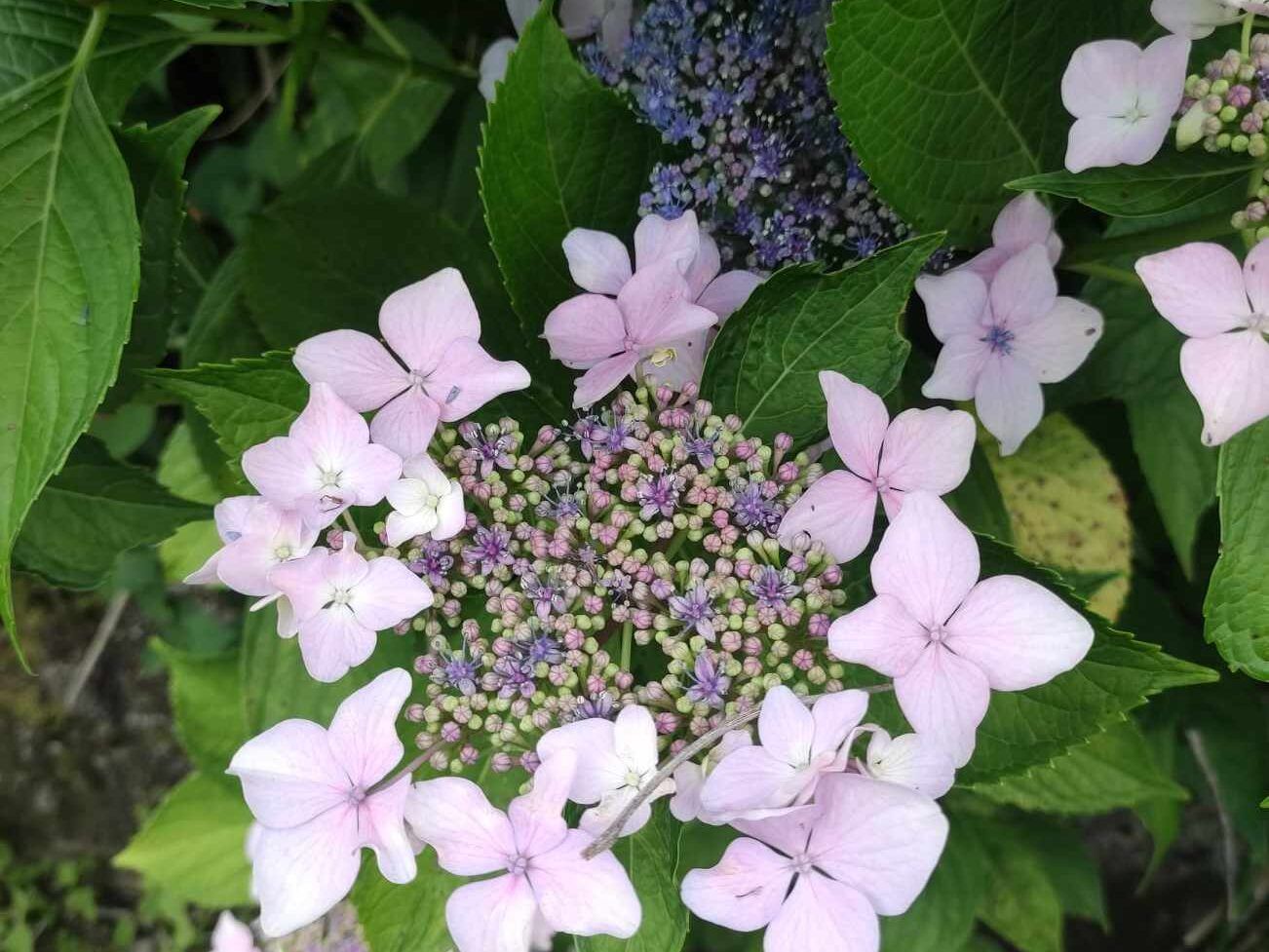
The rainy season arrived late. When it finally arrived, it refreshed the air enough for us to do some deep cutting of the tea plants. The rice paddies were covered in water and the new rice planted.
On a couple of rainy summers, I organised a Chakabuki in Hojicha House, as an excuse to drink the tea together while the rain poured outside.
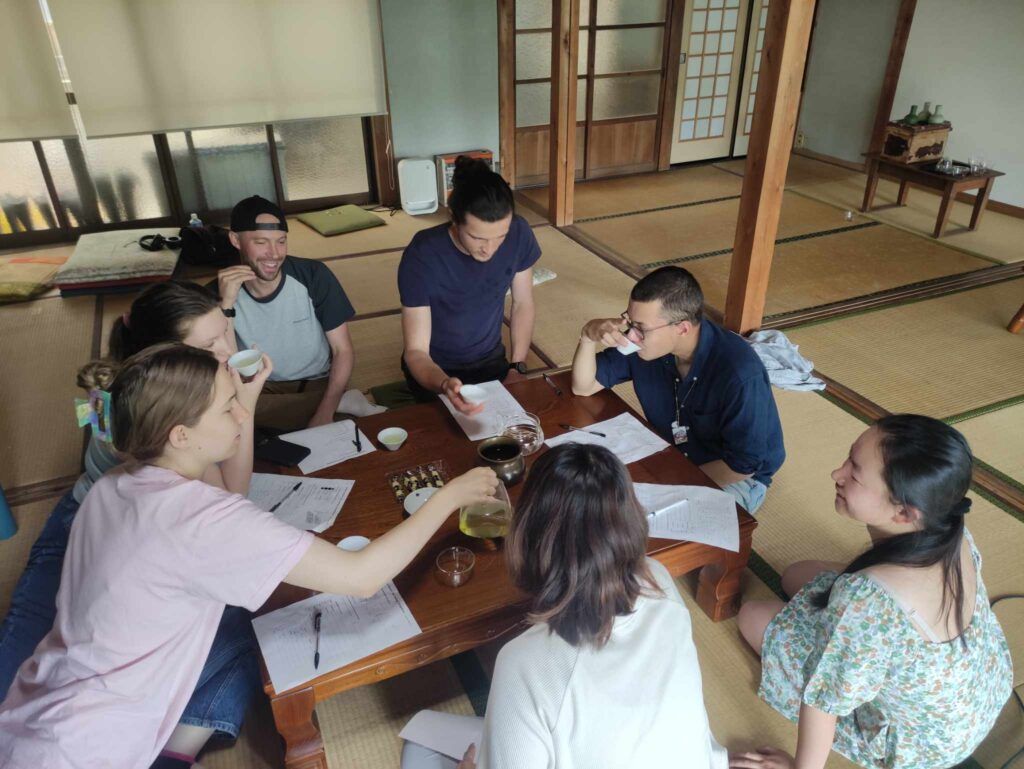
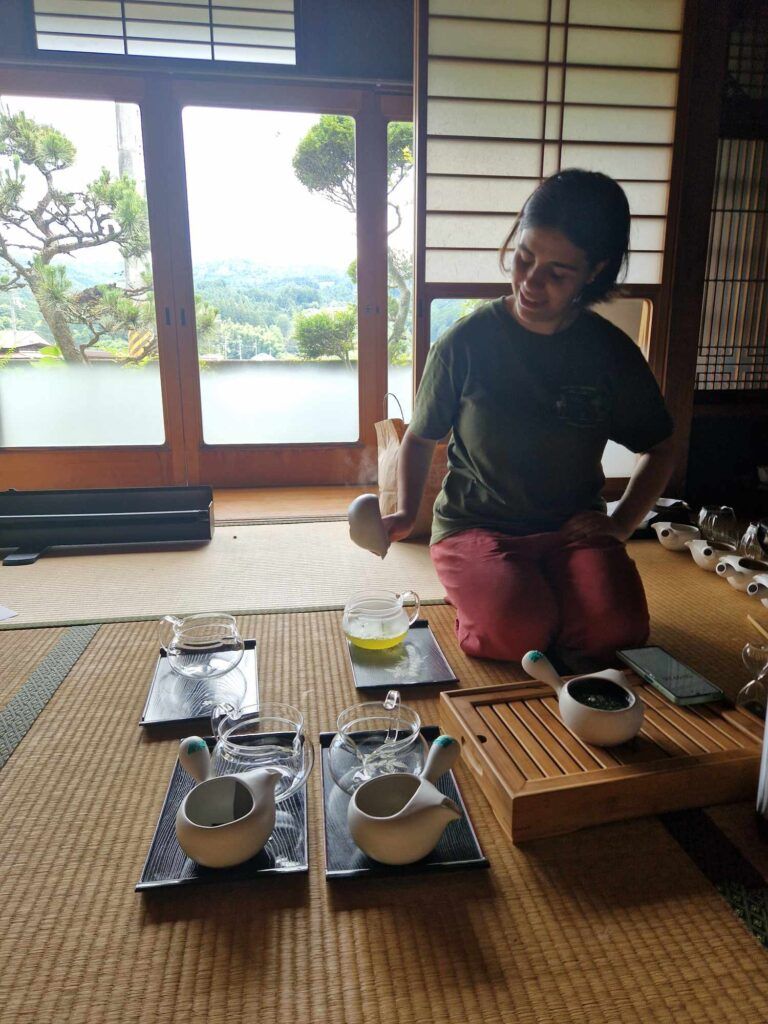
Then, the stronger heat reached Wazuka, and the summer harvest started and finished in a flash. The rice was now growing green. In the evenings, we grilled corn on the cob, watched movies while making puzzles, had tea tasting and board games.
I had some days off, and I travelled to Shikoku. I visited some larger cities, but also got pleasantly lost in smaller towns. My favourite adventure was in Kamikatsu, a small town where Awabancha tea is made. I met Kenji-san, a teacher from Kyoto that chose to move to Kamikatsu to be a tea farmer and to make Awabancha.
I came back to Wazuka. It was now time to make black tea. Interns and Assistant Managers went together to harvest tea in Aoimori. Each intern and staff processed from 20 to 30 kg of fresh leaves into black tea, adjusting the processing based on their intuition. I called my batch “Rain of Summer”, as a storm arrived while I was trying to wither my tea outdoors.
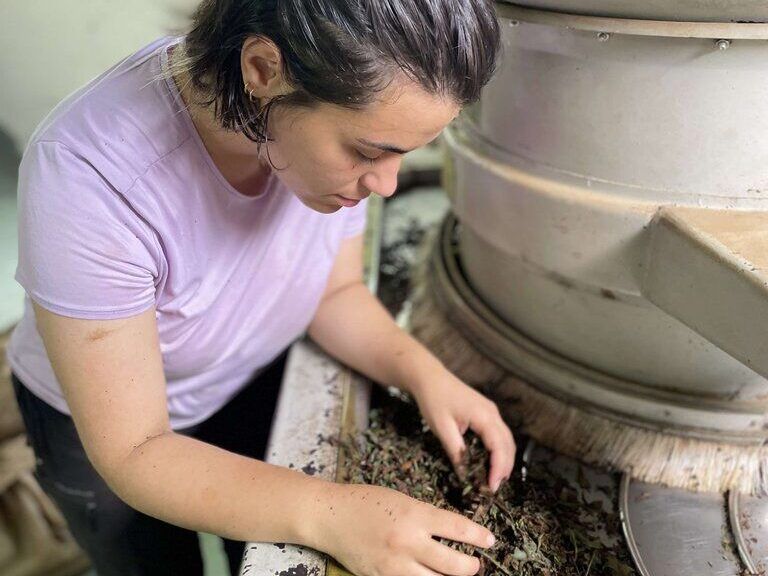
At Obubu we start the tea tour sharing the proverb “Ichi go Ichi e”, translating to “one moment one encounter”, which is an invitation to embrace the moment. You might be tired after a day of trimming at Jinja tea field, after harvesting at Aoimori, or after hosting a tea tour, but you will still feel that that has been the best day of your life so far! That to me is the sense of “Ichigo Ichi e”. It’s like spending a whole day in the factory rolling your black tea, it’s night already, but you still get to be moved by the fact that the tea that you harvested the day before is now smelling of green apple and cocoa.
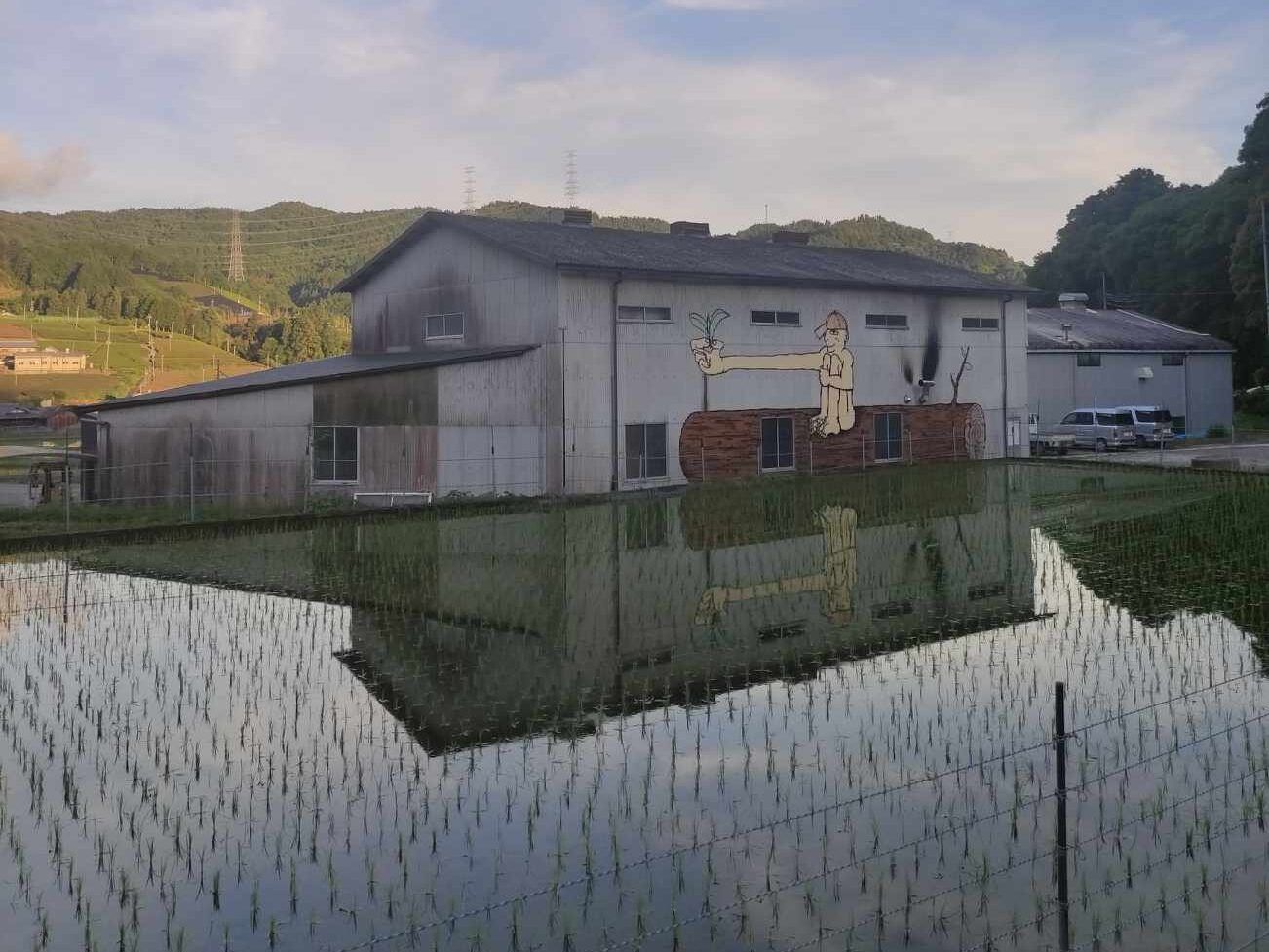
The rice kept growing and it is now turning yellow. It is the same colour of when I first arrived. It seems that one year has passed, and the time to say goodbye is approaching.
To all of the interns I got to meet this year, it has been an honour to be part of your Obubu experience! You all brought a little bit of yourself to Obubu, and added a brick to what Obubu is, even if you might not be aware of it. And getting to know and to learn from you was a honour. Thank you Lukas, Maren, Julien, David, Elvira, Cameron, Gabrielle, Emma, Jason, Chris, Kia, Jen, Lana, Miko, Nathan, Kali, Patrick, Jordan, Amanda, Spencer, Till, Jocelyn, Noe, and Jason.
Until next time, have a brew-tea-ful time!
Sarah

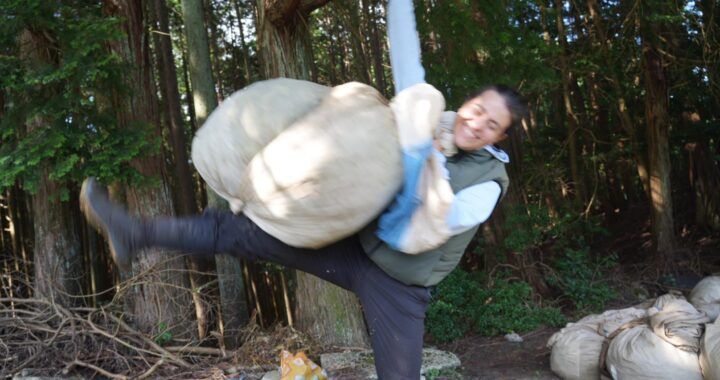
Thank you for sharing your experience.
It is as if I am there. Your explicit account of events and experiences renewed my time there, on a visit, 8 years ago.
Thank you